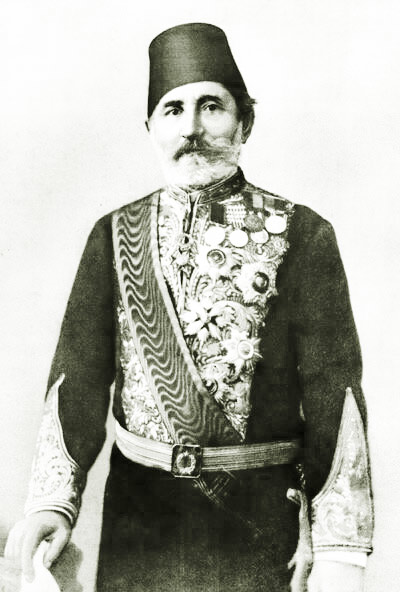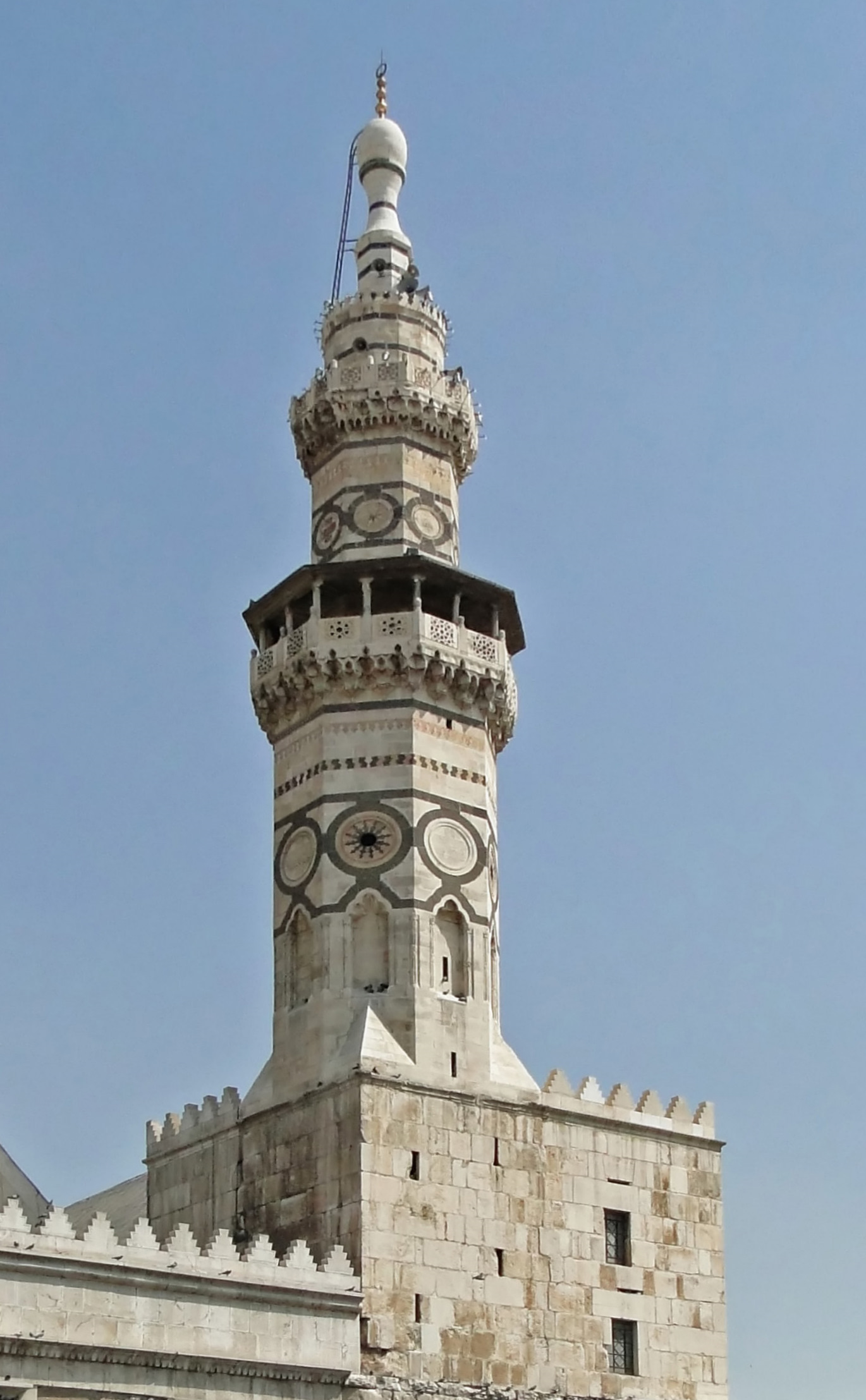|
Islam In The People's Socialist Republic Of Albania
Islam in Albania (1945–1991) covers a period of time when the Communist Party of Albania came to power under Enver Hoxha and exercised almost total control over the Albanian people. The communist government sought to radically overhaul Albanian society by realigning social, cultural and religious loyalties to the communist party through Albanian Nationalism in the pursuit of achieving unitary Albanian identity. Secularizing tenets borrowed from the National Awakening and Interwar period were continued and more radical approaches were adopted to sideline religion from the public sphere, allowing Albania by 1967 to declare itself an atheist state. Islam as practised by Muslims within Albania experienced profound changes and persecution under communism. Muslim clergy became imprisoned, most minarets, mosques, tekkes and Sufi shrines were destroyed, Muslim religious practices banned, state surveillance of adherents and severe punishment of people who did not comply. The effects a ... [...More Info...] [...Related Items...] OR: [Wikipedia] [Google] [Baidu] |
Party Of Labour Of Albania
The Party of Labour of Albania ( sq, Partia e Punës e Shqipërisë, PPSh), sometimes referred to as the Albanian Workers' Party (AWP), was the ruling and sole legal party of Albania during the communist period (1945–1991). It was founded on 8 November 1941 as the Communist Party of Albania (, PKSh) but changed its name in 1948. The party was dissolved on 13 June 1991 and succeeded by the Socialist Party of Albania. For most of its existence, the party was dominated by its First Secretary, Enver Hoxha, who was also the ''de facto'' leader of Albania. Background In the 1920s, Albania was the only Balkan country without a communist party. The first Albanian communists emerged from the followers of Albanian clergyman and politician Fan S. Noli. Once in Moscow, they formed the National Revolutionary Committee and became affiliated to the Comintern. In August 1928, the first Albanian Communist Party was formed in the Soviet Union. The most prominent figure of the party was Ali K ... [...More Info...] [...Related Items...] OR: [Wikipedia] [Google] [Baidu] |
National Unity
Nationalism is an idea and movement that holds that the nation should be congruent with the State (polity), state. As a movement, nationalism tends to promote the interests of a particular nation (as in a in-group and out-group, group of people),Anthony D. Smith, Smith, Anthony. ''Nationalism: Theory, Ideology, History''. Polity (publisher), Polity, 2010. pp. 9, 25–30; especially with the aim of gaining and maintaining the nation's sovereignty (self-governance) over its homeland to create a nation-state. Nationalism holds that each nation should govern itself, free from outside interference (self-determination), that a nation is a natural and ideal basis for a polity, and that the nation is the only rightful source of political power. It further aims to build and maintain a single national identity, based on a combination of shared social characteristics such as culture, ethnicity, geographic location, language, politics (or the government), religion, traditions and belief ... [...More Info...] [...Related Items...] OR: [Wikipedia] [Google] [Baidu] |
O Moj Shqypni
O Moj Shqypni ( en, "Oh Albania, poor Albania") is a poem written by Vaso Pasha, a political figure, poet, novelist, and patriot known for his role during the Rilindja. It was written between 1878, an important year for the League of Prizren and 1880. The poet, a critique of religious and political factionalism as a barrier to national unity of Albanians called for them overcoming religious divisions through a united Albanianism. In 1910, the music director of the orchestra of Vlorë melodized the poem. Poem Written in Vaso's native dialect of Shkodër, the poem is one of the few works written by him in Albanian. Others were penned in Italian or French. It has 72 verses. Vasa, a Catholic himself describes Albania, a nation whose people were divided between different religions and its fate. Vasa used the last line of poem ''Feja e shqyptarit asht shqyptarija'' (The faith of the Albanian is Albanianism) to remind his people that the identity of Albanians was not a product of religio ... [...More Info...] [...Related Items...] OR: [Wikipedia] [Google] [Baidu] |
Stanza
In poetry, a stanza (; from Italian language, Italian ''stanza'' , "room") is a group of lines within a poem, usually set off from others by a blank line or Indentation (typesetting), indentation. Stanzas can have regular rhyme scheme, rhyme and Metre (poetry), metrical schemes, but they are not required to have either. There are many different : Stanzaic form, forms of stanzas. Some stanzaic forms are simple, such as four-line quatrains. Other forms are more complex, such as the Spenserian stanza. Fixed verse, Fixed verse poems, such as sestinas, can be defined by the number and form of their stanzas. The stanza has also been known by terms such as ''batch'', ''fit'', and ''stave''. The term ''stanza'' has a similar meaning to ''strophe'', though ''strophe'' sometimes refers to an irregular set of lines, as opposed to regular, rhymed stanzas. Even though the term "stanza" is taken from Italian, in the Italian language the word "strofa" is more commonly used. In music, groups of ... [...More Info...] [...Related Items...] OR: [Wikipedia] [Google] [Baidu] |
Albanian Nationalism
Albanian nationalism is a general grouping of nationalist ideas and concepts generated by ethnic Albanians that were first formed in the 19th century during the Albanian National Awakening ( sq, Rilindja). Albanian nationalism is also associated with similar concepts, such as Albanianism. "Henceforth, Hoxha announced, the only religion would be "Albanianism." Hoxha was using nationalism as a weapon in his struggle to break out of the Soviet bloc." (''Shqiptaria'' or ''Shqiptarizmi'') and Pan-Albanianism, that includes ideas on the creation of a geographically expanded Albanian state or a ''Greater Albania'' encompassing adjacent Balkan lands with substantial Albanian populations. During the late Ottoman period Albanians were mainly Muslims with religious ties to the ruling Turks in the Ottoman Empire.. "Due to religious ties of the Albanian majority population with the ruling Ottoman Turks and the virtual lack of an Albanian state in history, nationalism was less developed among Al ... [...More Info...] [...Related Items...] OR: [Wikipedia] [Google] [Baidu] |
Poem
Poetry (derived from the Greek ''poiesis'', "making"), also called verse, is a form of literature that uses aesthetic and often rhythmic qualities of language − such as phonaesthetics, sound symbolism, and metre − to evoke meanings in addition to, or in place of, a prosaic ostensible meaning. A poem is a literary composition, written by a poet, using this principle. Poetry has a long and varied history, evolving differentially across the globe. It dates back at least to prehistoric times with hunting poetry in Africa and to panegyric and elegiac court poetry of the empires of the Nile, Niger, and Volta River valleys. Some of the earliest written poetry in Africa occurs among the Pyramid Texts written during the 25th century BCE. The earliest surviving Western Asian epic poetry, the ''Epic of Gilgamesh'', was written in Sumerian. Early poems in the Eurasian continent evolved from folk songs such as the Chinese ''Shijing'', as well as religious hymns (the Sanskrit ' ... [...More Info...] [...Related Items...] OR: [Wikipedia] [Google] [Baidu] |
Pashko Vasa
Pashko is a surname. Notable people with the surname include: * Gramoz Pashko (1955–2006), Albanian economist and politician * Josif Pashko (1918–1963), Albanian politician * Walter Pashko (1930–2006), American painter See also * Pasco (other) * Pasko (other) {{Surname ... [...More Info...] [...Related Items...] OR: [Wikipedia] [Google] [Baidu] |
Anti-Turkism
Anti-Turkish sentiment, also known as Anti-Turkism ( tr, Türk karşıtlığı), or Turkophobia () is hostility, intolerance, or xenophobia against Turkish people, Turkish culture and the Turkish language. The term refers to intolerance, not only against Turks across all regions, but also against the subjects of the Ottoman Empire, as well as descendants of ethnic Turks such as Syrian Turkmen and Iraqi Turkmen. It is also applied to groups who developed in part under the influence of Turkish culture and traditions while converting to Islam, especially during the time of the Ottoman Empire, such as Albanians, Bosniaks and other smaller ethnic groups around Balkans. Early modern period In the Early modern period, the fall of Constantinople and the Ottoman wars in Europe—part of European Christians' effort to stem the expansion of the Ottoman Empire, the predecessor to Turkey—helped fuel the development of anti-Turkism. By the middle of the 15th century, special masses ... [...More Info...] [...Related Items...] OR: [Wikipedia] [Google] [Baidu] |
Islamophobia
Islamophobia is the fear of, hatred of, or prejudice against the religion of Islam or Muslims in general, especially when seen as a geopolitical force or a source of terrorism. The scope and precise definition of the term ''Islamophobia'', is the subject of debate. Some scholars consider it to be a form of xenophobia or racism, some consider Islamophobia and racism to be closely related or partially overlapping phenomena, while others dispute any relationship; primarily on the grounds that religion is not a race. The causes of Islamophobia are also the subject of debate, most notably between commentators who have posited an increase in Islamophobia resulting from the September 11 attacks, the rise of the militant group Islamic State, other terror attacks in Europe and the United States by Islamic extremists, those who associated it with the increased presence of Muslims in the United States and in the European Union, and others who view it as a response to the emergence ... [...More Info...] [...Related Items...] OR: [Wikipedia] [Google] [Baidu] |
Islamic Architecture
Islamic architecture comprises the architectural styles of buildings associated with Islam. It encompasses both secular and religious styles from the early history of Islam to the present day. The Islamic world encompasses a wide geographic area historically ranging from western Africa and Europe to eastern Asia. Certain commonalities are shared by Islamic architectural styles across all these regions, but over time different regions developed their own styles according to local materials and techniques, local dynasties and patrons, different regional centers of artistic production, and sometimes different religious affiliations. Early Islamic architecture was influenced by Roman, Byzantine, Iranian, and Mesopotamian architecture and all other lands which the Early Muslim conquests conquered in the seventh and eighth centuries.: "As the Arabs did not have an architectural tradition suited to the needs of a great empire, they adopted the building methods of the defeated Sassan ... [...More Info...] [...Related Items...] OR: [Wikipedia] [Google] [Baidu] |
Minaret
A minaret (; ar, منارة, translit=manāra, or ar, مِئْذَنة, translit=miʾḏana, links=no; tr, minare; fa, گلدسته, translit=goldaste) is a type of tower typically built into or adjacent to mosques. Minarets are generally used to project the Muslim call to prayer ('' adhan''), but they also served as landmarks and symbols of Islam's presence. They can have a variety of forms, from thick, squat towers to soaring, pencil-thin spires. Etymology Two Arabic words are used to denote the minaret tower: ''manāra'' and ''manār''. The English word "minaret" originates from the former, via the Turkish version (). The Arabic word ''manāra'' (plural: ''manārāt'') originally meant a "lamp stand", a cognate of Hebrew '' menorah''. It is assumed to be a derivation of an older reconstructed form, ''manwara''. The other word, ''manār'' (plural: ''manā'ir'' or ''manāyir''), means "a place of light". Both words derive from the Arabic root ''n-w-r'', which has a ... [...More Info...] [...Related Items...] OR: [Wikipedia] [Google] [Baidu] |
.jpg)



.jpg)
.jpg)
